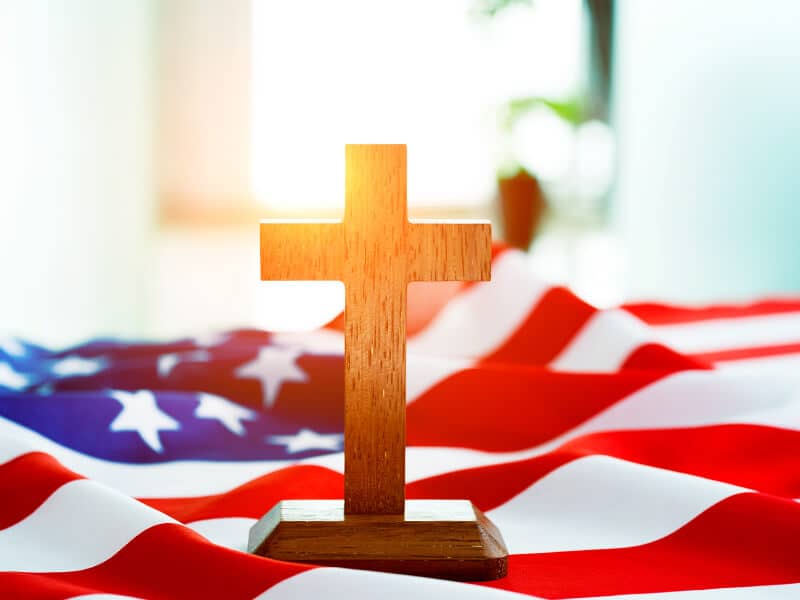We need a religious test for the U.S. presidency.
The Constitution mandates that "no religious Test shall ever be required as a Qualification to any Office or public Trust under the United States.' So I am not talking about requiring that the president be Christian or Judeo-Christian or even a believer in God.
I am talking about a different sort of test -- a quiz really. I want to be sure that our future presidents know enough about the world's religions to run our foreign policy, and that U.S. citizens know enough to hold their feet to the fire.
Swirling around the presidential campaign of former Massachusetts Gov. Mitt Romney is the question of whether a Mormon is electable.
A recent Gallup Poll found that 24 percent of Americans would not vote for a Mormon for president, and it is hard to imagine that Romney's religious affiliation will help him among evangelical voters, some of whom see the Church of Jesus Christ of Latter-day Saints as a dangerous cult. I do not care whether Romney is a Mormon or a Protestant or a Hindu. I do care, however, whether he knows enough about the world's religions to serve as our head of state and safeguard our national security.
More than a quarter century after the Iranian revolution, American officials continue to conduct foreign policy as if religion does not matter overseas.
Former Secretary of State Madeleine Albright has written that she had a gaggle of official economic experts at her beck and call but only one informal expert on religion. Today we continue to appoint ambassadors to Muslim-majority countries without requiring that they have any training in Islamic studies. And according to the Iraq Study Group Report, only six of the thousand employees of the U.S. Embassy in Baghdad are fluent in Arabic.
Many laughed when Howard Dean, who now runs the Democratic National Committee, listed Job as his favorite New Testament book. But when Rep. Silvestre Reyes, the Texas Democrat who now chairs the House Intelligence Committee, was unable to say a few months ago whether al-Qaida is a Sunni or Shiite group, my inclination was to cry.
Whether you are an atheist or a born-again Christian, you should be able to attest to this: We live in a furiously religious world in which theological beliefs motivate people to wage war and fight for human rights, to combat AIDS in Africa and fly jets into buildings in Manhattan. In Sri Lanka, sectarian warfare pits Buddhists against Hindus. In Kashmir, two nuclear powers -- the Muslim-majority state of Pakistan and the Hindu-majority state of India -- face off over land that is sacred to both. And in Jerusalem, three monotheistic traditions with strong traditions of martyrdom are locked in an ancient dispute over land and all that it symbolizes -- which is to say everything that is holy.
Anyone who seeks to steer the American ship of state through these roiling international waters should possess basic literacy in the world's religions.
Our presidents should be able to answer very basic questions about Christianity, Judaism, Islam and the religions of Asia. So should the citizens who elect them.
I am not insisting that all politicians and citizens get religious studies Ph.D.s. I am insisting, however, that we as a country begin to cultivate basic literacy on the world's religions. Our presidents should be capable of understanding not just the military benefits but also the cultural costs of stationing American troops in Muslim holy lands, and of recognizing the threats to our national security posed by the spread of the tradition of martyrdom from Shia to Sunni Islam. Our citizens, meanwhile, should know enough to hold them accountable.
I challenge journalists covering the presidential candidates to start putting these candidates to the test on the religion front. Ask them which form of Islam -- Sunni or Shia -- predominates in Iran (Shia), in Saudi Arabia (Sunni) and al-Qaida (Sunni). Ask them which religion predominates in Thailand (Buddhism), and what faith is practiced by the current Prime Minister of India (Sikhism). Ask them to name the three holiest cities of Islam (Mecca, Medina, and Jerusalem). See whether they know that the four countries with the largest populations of Muslims (Indonesia, Pakistan, Bangladesh and India) all lie outside the Middle East.
If a presidential candidate returns these questions with a blank stare, I suggest we look elsewhere for our next commander in chief.
Stephen Prothero is the chair of the Department of Religion at
Boston University and the author of the new book, "Religious Literacy:
What Every American Needs to Know -- and Doesn't" (HarperSanFrancisco).
2016-07-27
2016-07-27
Beliefnet Editor
more from beliefnet and our partners

